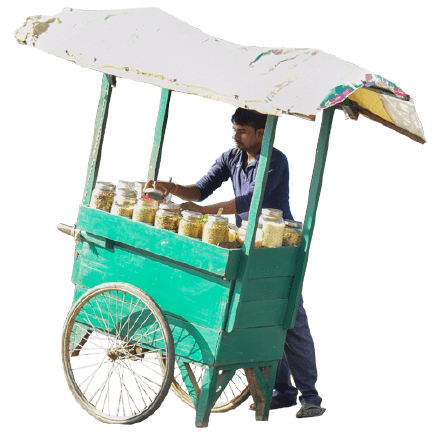-
 ResearchWe invest in the entire journey from understanding, ideating,
ResearchWe invest in the entire journey from understanding, ideating,
solutioning to impact.
CREATING CRITICAL KNOWLEDGE
From building a deeper understanding of people’s needs, to designing innovative solutions
that improve their lives and enabling scale-ups of proven solutions – we are invested
in the entire journey from ideas to impact.
A typical research project at LEAD begins with a complex problem.



We demystify and deconstruct these big questions and create knowledge that is critical to
enable systemic change.
We tinker with frameworks, methods, and analytical tools, and engage with actors on the
ground to uncover new insights and ways of thinking - seeking a fine balance between rigour
and rapid results. We explore new technology-backed approaches to methods, measurement,
analytics and data collection.
We believe in the power of lean, iterative experimentation to quickly capture
and be guided by data. We seek allies and talented people to work with, to help
achieve transformative impact.
GUIDING
RESEARCH
PRINCIPLES
What we focus on:
Vulnerable and
marginalized segments
Tackle the pivotal questions
that remain unanswered
Support end-to-end change
journeys
How we do it:
Apply a systems-based
approach
Infuse user-centricity
(individual, household,
enterprise)
Integrate diverse perspectives
– from traditional and
non-traditional domains
Adopt “best-fit” methods and
iterative experiments in
real-life scenarios
THEMATIC AREAS

Financial Well-being and
Social Protection
Financial products and services play a critical role in improving the well-being and resilience of individuals and households. However, with still over 190 million unbanked people in India, this promise of financial inclusion is largely unmet. In addition, account usage and access to savings, credit, digital payments, insurance and pension are quite low. We work with Financial Institutions, Governments, NGOs, and Academics to understand what are the determinants of individual and collective financial decision making and leverage this to design and test appropriate financial solutions, through technology and human-centric design as well as invest in the necessary capabilities for vulnerable sections to effectively use these products. Whether it is about improving systems to help urban migrants send remittances home or enhancing last-mile access to credit, savings, and insurance products for rural communities, we combine rigour and creativity to bring the benefits of financial inclusion to the poor.

Small, Growing Businesses
and Employment
Micro, small and medium enterprises are an engine of job-creation for a majority of the working population in emerging economies. India is home to over 63 million enterprises yet very little is known about the dynamics of enterprise creation, formalisation, and graduation. Smaller enterprises also face disproportionately higher sustainability and growth barriers resulting in a deficit of productive, job-creating entrepreneurs and an excess of informal entrepreneurs focused on surviving rather than thriving. We focus on decomposing the impact of fragmented production, limited access to finance, broken market linkages, and other information asymmetries, developing frameworks to identify and promote the most promising enterprises as well as entrepreneurs, and investing in their capacities to build sustainable, growth-oriented businesses.

Health Systems and
Quality of Life
Unsustainable health-care expenses are pushing over 100 million people into poverty. Low health awareness, barriers to affordable access, and misalignment between systems of healthcare provision and financing are significant challenges in equitable healthcare design. At the same time, the advent of new programs like Ayushman Bharat offers new opportunities to analyze structured data and learning related to patterns and causes of illnesses as well as treatments to better target health interventions and address the needs of the most vulnerable segments. We focus on understanding how to improve health systems as well as tackle significant health challenges such as mental health and NCDs.

Institutions and Society
All critical development challenges be it finance, health or livelihoods are influenced by complex and overlapping networks stakeholder interactions and practices. These actors and “rules of the game” can be formal – i.e., established by laws, regulations, economic, markets, and politics – or informal – i.e., constituted by social conventions, cultural norms, and human values. We integrate institutional perspectives in all our work to understand how public, market and community- based institutions can support specific technical interventions and deliver social and economic well-being for India’s next half billion. Data and research consistently recognizes and describes the dynamic role that institutions play in addressing problems sustainably. We aim to increase our understanding of the roles the various institutions play, and how they can better evolve to advance development efforts.




